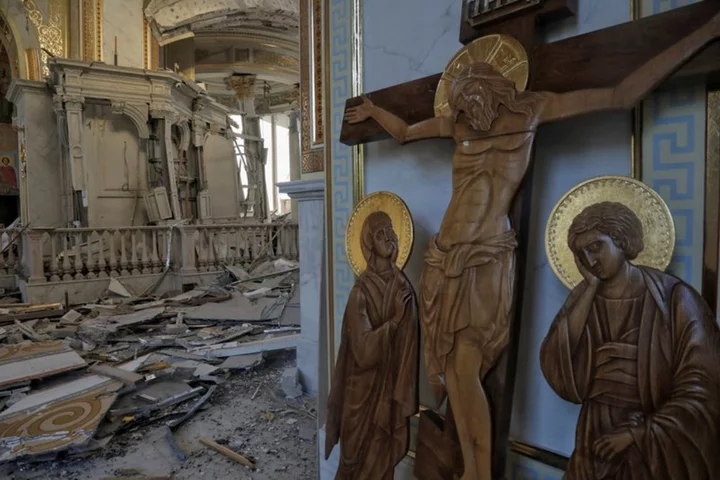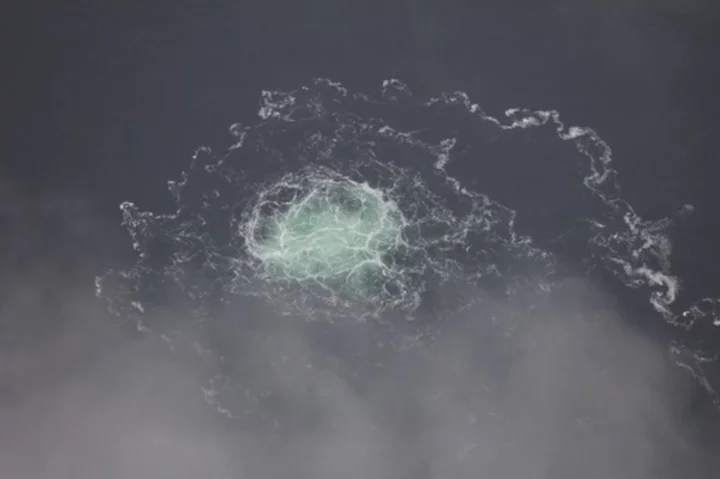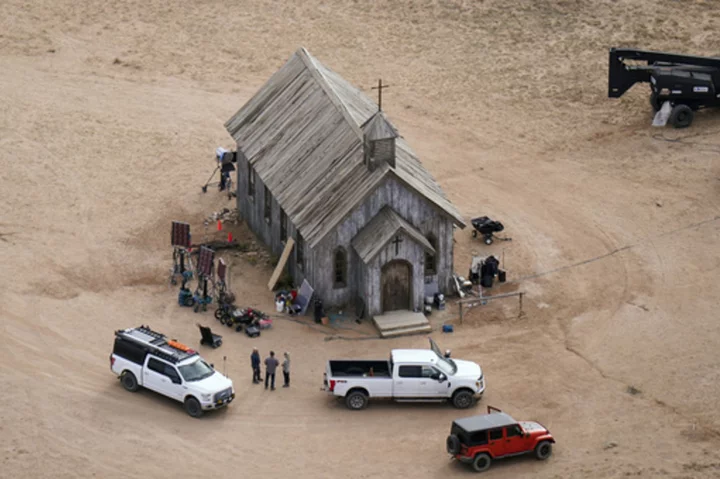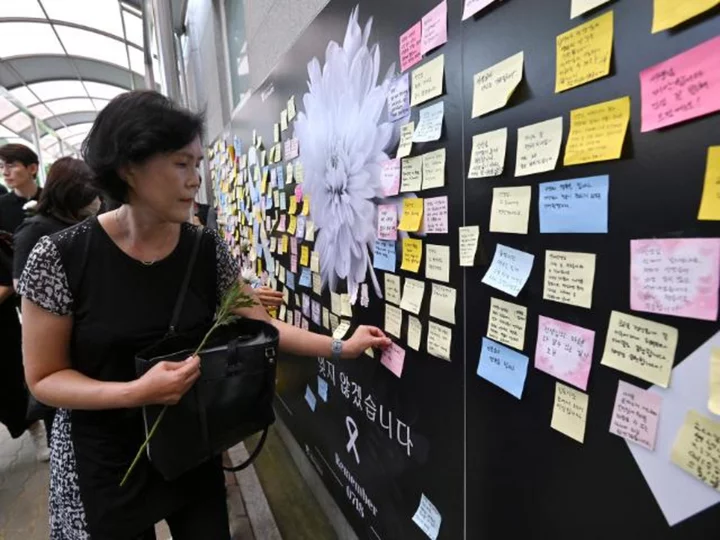By Iryna Nazarchuk
ODESA A Russian missile attack on Ukraine's southern port of Odesa early on Sunday killed one, injured 20 and severely damaged an Orthodox cathedral in the city centre, a UNESCO world heritage site, President Volodymyr Zelenskiy said.
"Odesa: another night attack of the monsters," Oleh Kiper, governor of the Odesa region, said on the Telegram messaging app. He said the missile attacks also destroyed six houses and apartment buildings and hospitalised 14 people.
Zelenskiy said the injured included four children aged 11 to 17. Almost 50 buildings were damaged, 25 of them architectural monuments, and the Greek consulate was among the affected structures, he added.
"All these missiles target not just cities, villages or people, but humanity and the foundations of our entire European culture," Zelenskiy said.
Officials said the icon of the patroness of the city had been retrieved from the rubble of the Spaso-Preobrazhenskyi Cathedral, or Transfiguration Cathedral. Zelenskiy said it was hit by a Kh-22, a Cold War-era missile designed to hit U.S. aircraft carriers.
The cathedral's archdeacon, Andriy Palchuk, told Reuters the missile strike had started a fire which only affected one corner of the cathedral containing non-historic religious artefacts for purchase by worshippers.
Ukraine's defence ministry said the cathedral had now been "destroyed twice," by Russian President Vladimir Putin and Soviet leader Joseph Stalin.
The early 19th-century cathedral was demolished in 1936 as part of Stalin's anti-religious campaigns and rebuilt when Ukraine gained independence from Moscow in 1991.
Parts of the building were destroyed, the floors were covered in rubble and chunks were ripped off the cathedral's ornate walls. Several local residents from the surrounding area came to assist with cleaning up the rubble.
Russia has attacked Odesa with missiles and drones several times since it withdrew on Monday from a year-old deal that had allowed for safe exports of Ukraine's grain from Black Sea ports. Odesa's ports were the departure point for grain leaving Ukraine in the Turkey and UN-brokered agreement.
Zelenskiy vowed payback, saying on Twitter, "There can be no excuse for Russian evil. As always, this evil will lose. And there will definitely be a retaliation to Russian terrorists for Odesa. They will feel this retaliation."
Italian Prime Minister Giorgia Meloni issued a statement condemning the attack and offering assistance in the reconstruction of the cathedral.
In its daily briefing, Russia's Defence Ministry said it had struck targets "where terrorist attacks were being prepared" in the Odesa area and all targets had been destroyed.
Separately, the ministry said Ukrainian reports of a Russian strike on the cathedral were false, and its targets in Odesa were located "a safe distance" from the cathedral complex. It said the "probable cause" of the damage to the cathedral was a Ukrainian anti-aircraft missile.
Russia has been pounding Odesa and other Ukrainian food export facilities nearly daily over the past week.
Pro-Kremlin military bloggers have said in the past week that Russia has changed its air attack tactics, using a combination of weapons in a "swarm" manner, one wave after another, which they say is more difficult to defend against.
Zelenskiy accused Russia of using 19 missiles of different types "absolutely on purpose, so that they are harder to shoot down and so that they cause more destruction." Odesa's military administration said air defence systems destroyed nine of the 19 missiles fired at Odesa and the surrounding region.
The cathedral that was hit on Sunday is of the Moscow-linked Ukrainian Orthodox Church (UOC), Ukraine's second-largest Church. Most Ukrainian Orthodox believers belong to a separate branch of the faith formed four years ago by uniting branches independent of Russian authority.
Ukraine has accused the UOC of maintaining links to the pro-invasion Russian Orthodox Church, which used to be its parent church but with which the UOC says it broke ties in May last year following the Russian invasion.
(Reporting by Iryna Nazarchuk in Odesa, Nick Starkov and Max Hunder in Kyiv, Felix Light and Keith Weir in London, Lidia Kelly in Melbourne; Writing by Max Hunder and Elaine Monaghan in Washington; Editing by Richard Chang, Frances Kerry and Chris Reese)









